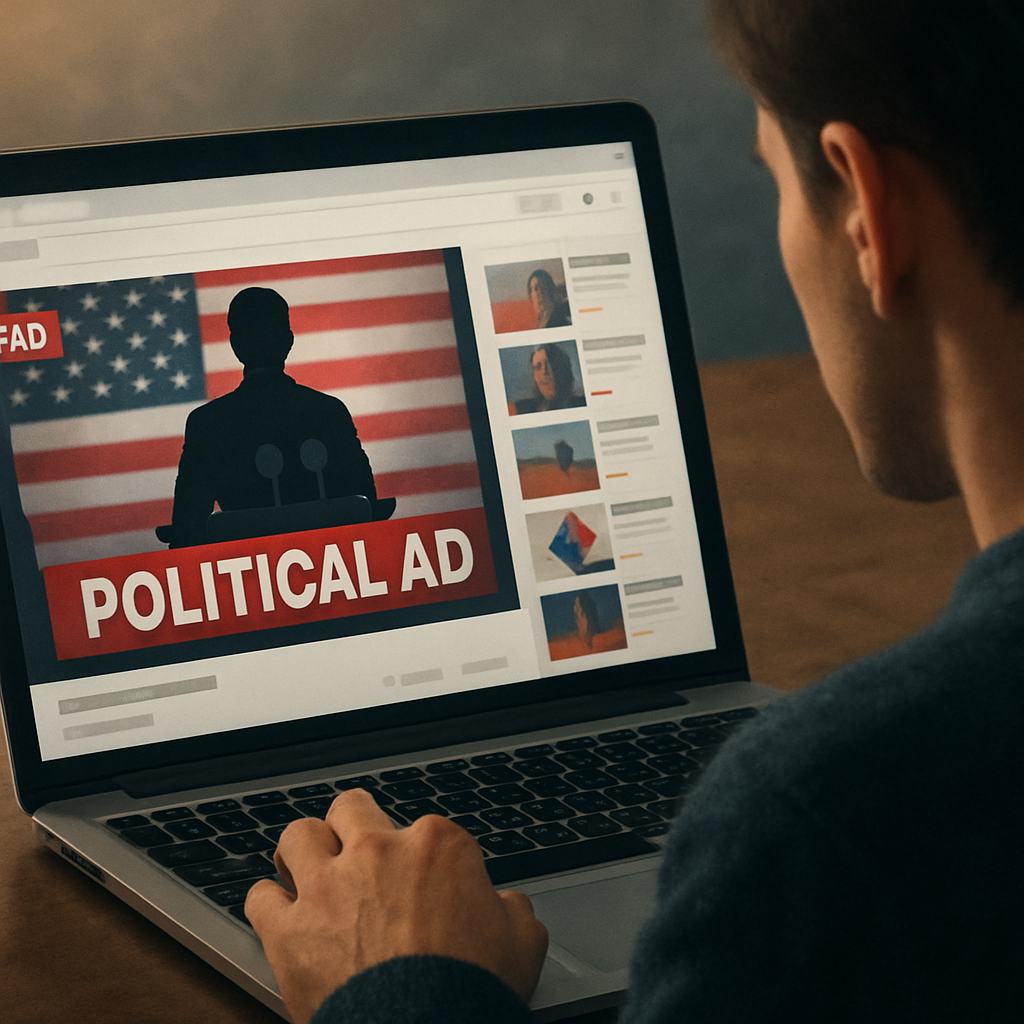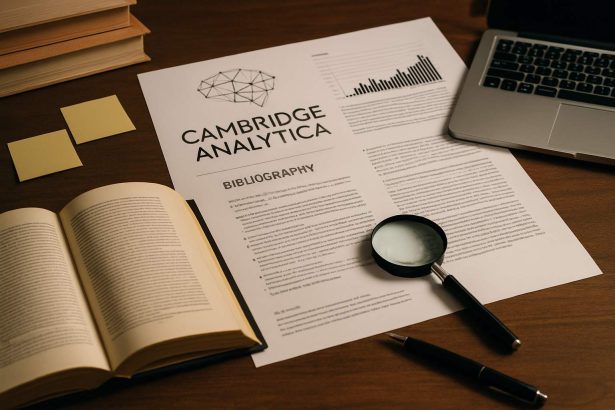What is political microtargeting?
Political microtargeting is the practice of using personal data to deliver customized political messages to specific individuals or small groups.
Instead of broadcasting one universal slogan, campaigns create thousands of variations of the same ad — each adapted to a person’s location, interests, age, or even psychological profile.
The idea comes from marketing: the same tools that help brands sell sneakers now help politicians sell ideas.
But when applied to elections, the consequences extend far beyond consumer choice. Microtargeting doesn’t just influence what people buy; it can shape what they believe.
How data fuels persuasion
Every digital trace you leave — a like, a click, a search, a share — feeds into massive databases.
Campaigns purchase or collect this information, often combining it with voter records, surveys, and public data to build detailed profiles of each citizen.
Algorithms then group users into segments: undecided young voters, concerned parents, retirees, environmentalists, or nationalists.
Each group receives a slightly different message, image, or emotional tone designed to resonate with their values and fears.
The emotional logic behind targeting
Microtargeting works because it taps into human emotion.
People respond more strongly to messages that confirm what they already believe or that provoke anger, pride, or fear.
By analyzing engagement data, platforms can learn which emotions drive clicks — and campaigns can tailor their content accordingly.
For instance, a voter worried about immigration might see an ad emphasizing national security, while another concerned about social justice sees a story about inclusivity.
Both ads come from the same campaign but create entirely different realities for each viewer.
From TV ads to algorithmic propaganda
In the pre-digital era, political communication was public.
When a campaign aired a television ad, everyone could see and critique it.
Journalists, regulators, and citizens shared a common information space.
Today, targeted political ads are often invisible to anyone except their intended recipients.
This lack of transparency makes it difficult to monitor false claims or manipulative tactics.
The same campaign may tell one group that it will cut taxes and another that it will increase social spending — without anyone noticing the contradiction.
Cambridge Analytica and the microtargeting revolution
The Cambridge Analytica scandal revealed the full power — and danger — of data-driven persuasion.
By analyzing millions of Facebook profiles, the company claimed it could predict personality traits and tailor ads accordingly.
Their approach went beyond demographics, focusing instead on psychology.
Whether or not their methods were as effective as advertised, the incident proved how vulnerable modern democracies are to manipulation.
Political communication had quietly entered the era of personalized propaganda.
Platforms at the center of influence
Social media platforms are not passive players.
Their algorithms decide which ads reach which users, how often they appear, and at what moment.
Because these systems optimize for engagement, they naturally favor emotionally charged, polarizing content.
Facebook, Google, and X (formerly Twitter) have introduced ad transparency tools to show who paid for political campaigns and who was targeted.
Still, most users never check these databases, and the complexity of ad auctions keeps the process largely opaque.
Ethical dilemmas and democratic risks
Critics argue that microtargeting undermines democracy in three major ways:
- Fragmentation of reality: voters no longer share a common set of facts, making public debate harder.
- Lack of accountability: campaigns can make contradictory promises without being exposed.
- Manipulation through emotion: ads can exploit psychological vulnerabilities instead of rational argument.
Proponents, however, claim that microtargeting can improve efficiency and increase voter engagement by delivering relevant information to specific audiences.
Regulation attempts around the world
The European Union has begun to address political advertising under the Digital Services Act (DSA) and upcoming election transparency laws.
These regulations aim to force campaigns to disclose targeting criteria and funding sources.
In the United States, efforts such as the Honest Ads Act have been proposed but not yet fully implemented.
Some experts argue for banning microtargeting in politics altogether, while others advocate for independent oversight boards that can audit algorithms and ad archives.
How to recognize when you’re being targeted
Detecting microtargeting is difficult, but there are clues.
If an ad feels strangely personal — addressing your fears, hobbies, or local concerns — it’s likely tailored for you.
You can often find information about the advertiser by clicking “Why am I seeing this ad?” on platforms like Facebook or YouTube.
Browser extensions such as Who Targets Me and academic projects like Ad Observatory allow users to track political ads and contribute to transparency research.
Can microtargeting ever be ethical?
Ethical microtargeting would require transparency, fairness, and respect for consent.
Campaigns would need to disclose how they collect and use data, and ensure that messaging does not exploit personal insecurities or spread misinformation.
Some scholars suggest a “public registry of ads,” where every piece of political communication is logged and accessible for independent analysis —
ensuring accountability without banning innovation entirely.
The future of digital persuasion
As artificial intelligence advances, microtargeting is evolving into something even more powerful.
Generative models can now produce custom videos, voices, and images in seconds — creating content so realistic that distinguishing fact from fiction becomes nearly impossible.
The next frontier is predictive persuasion: using AI to anticipate people’s moods and deliver perfectly timed messages.
The implications for privacy and political freedom are profound.
Takeaway: Political microtargeting has transformed democracy into a data-driven marketplace of influence.
It can empower or endanger, depending on how transparently it is used.
In an era where every click can reveal your beliefs, the right to privacy is also the right to think freely.
- What is political microtargeting?
- How data fuels persuasion
- The emotional logic behind targeting
- From TV ads to algorithmic propaganda
- Cambridge Analytica and the microtargeting revolution
- Platforms at the center of influence
- Ethical dilemmas and democratic risks
- Regulation attempts around the world
- How to recognize when you’re being targeted
- Can microtargeting ever be ethical?
- The future of digital persuasion







